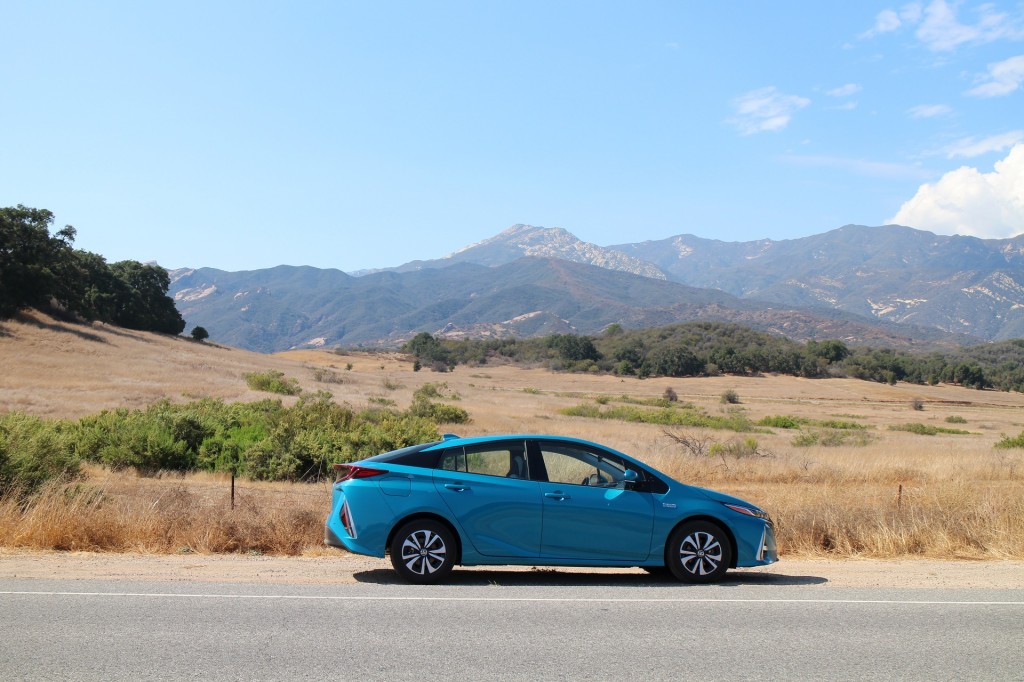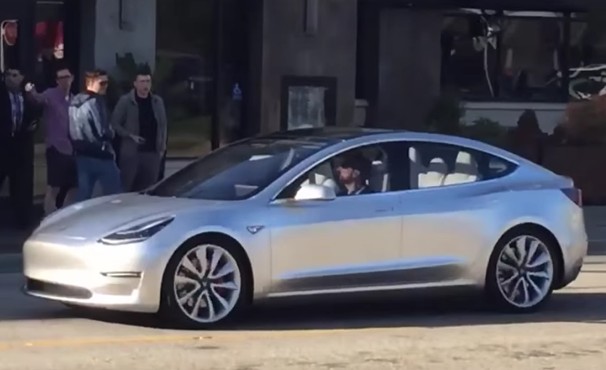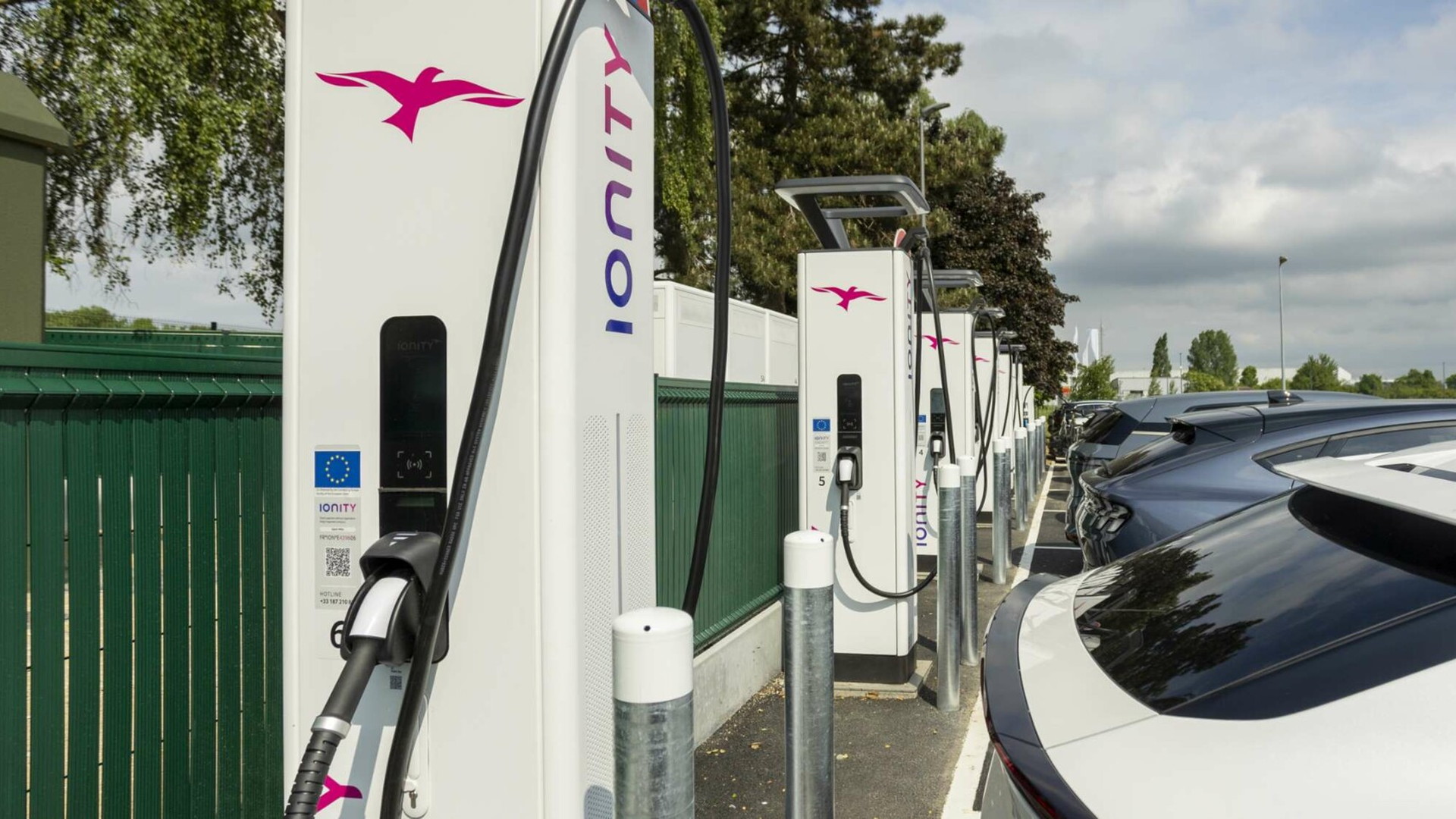California has always been a bellwether for automotive trends, and it leads every other state by far in the volumes of plug-in electric cars sold.
It also led in national sales of hybrid cars for many years.
In fact, for several years running, the Toyota Prius was the single most popular passenger car sold in the state—setting it well apart from the rest of the U.S.
DON'T MISS: Plug-in electric car sales for Apr: Bolt EV back over 1,000
Now, sales of electric cars have soared in the state, at the same time that hybrid sales actually lost ground as a proportion of the total.
The data comes courtesy of a Los Angeles Times article last week that looked at data on car sales within the state from January through March.
A total of 506,745 cars and light trucks were delivered in the first quarter. Of those, 13,804 were battery-electric vehicles, making up 2.7 percent of the market.

First 2017 Chevrolet Bolt EV buyers, Fremont, California: Bobby Edmonds, Bill Mattos, Steve Henry
Two big factors were the Tesla Model S and the Chevrolet Bolt EV, which went on sale in the state in December, two months before it was offered anywhere else except Oregon.
A total of 2,735 Bolt EVs found buyers in California in the first three months, which represents 88.5 percent of the 3,092 Bolt EVs sold anywhere in the U.S.
Deliveries of Chevy's 238-mile electric car in Maryland, Massachusetts, and Virginia didn't start until February.
READ THIS: When can I buy a Chevy Bolt EV? Our state-by-state schedule
Plug-in hybrids made up another 2.1 percent of total California vehicle sales, a rise of 54 percent over the same quarter last year.
That puts vehicles with plugs of any kind at almost 5 percent of the California total, against roughly 1 percent of overall U.S. sales of 17.5 million vehicles last year.
Hybrid cars, meanwhile, took an additional 4.4 percent of California sales, meaning electrified vehicles of all kinds represented 9.2 percent, or almost one of every 10 vehicles sold in the state.

2017 Toyota Prius Prime test drive, Ojai, California, Sep 2016
But as the Los Angeles Times notes, that percentage of hybrid sales is 9.2 percent lower than in the same period last year.
It's known that sales of hybrids correlate fairly closely with gasoline prices, which have remained at relatively low levels over the last few years.
The new fourth-generation Toyota Prius, while it is a much better car than its predecessor, is selling below expectations—possibly due to its extreme styling.
CHECK OUT: California utility SCE offers $450 rebate for new and used electric cars
The big question, then, for makers from Toyota to Tesla, is whether hybrid owners are simply replacing them with plug-in cars, or whether sales of electrified vehicles overall will continue to rise as a percentage of the California market.
The Bolt EV seems certain to have expanded the market, as will the second-generation Nissan Leaf and the Tesla Model 3 when they arrive over the next six to nine months.
Both of those cars are expected to offer 200 miles or more of electric range at prices starting in the mid-$30,000 range.

Tesla Model 3 Driving on a Public Road
They should boost overall sales of all-electric models, and plug-in hybrid offerings will increase as well as German luxury makers add a plug-in option to more of their mainstream model lines.
Depending on how fast the Model 3 rolls out, it seems not out of the realm of possibility that plug-in sales for the first quarter of next year might double this year's total.
With California intending that a significant percentage of new cars sold by 2025 be zero-emission—the proportion may range from 8 to 15 percent depending on the vehicle mix—that would be an encouraging sign.
[hat tip: Brian Henderson]
_______________________________________













